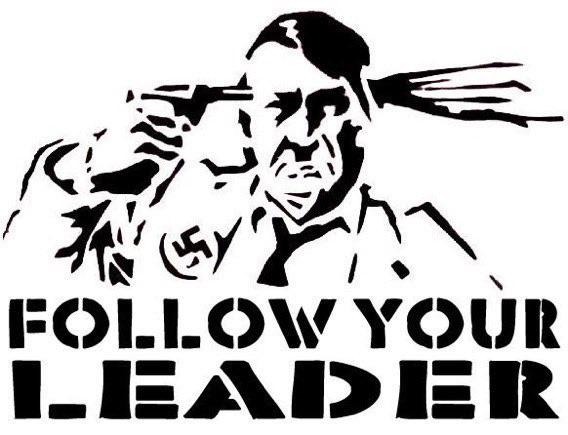I’m just curious about this. As someone with a chronic illness, I pretty much never hear anyone talk about things related to the sorts of difficulties and discrimination I and others might face within society. I’m not aware of companies or governments doing anything special to bring awareness on the same scale of say, pride month for instance. In fact certain aspects of accessibility were only normalized during the pandemic when healthy people needed them and now they’re being gradually rescinded now that they don’t. It’s annoying for those who’ve come to prefer those accommodations. It’s cruel for those who rely on them.
And just to be clear, I’m not suggesting this is an either or sort of thing. I’m just wondering why it’s not a that and this sort of thing. It’s possible I’m not considering the whole picture here, and I don’t mean for this to be controversial.
A lot of the points here are valid but I personally think it’s partly because disabled people aren’t “pretty”. There’s a narrow band of what’s sort of socially accepted as a disability and if you’re not in that band you’re kinda screwed. If it’s not visible enough you’re faking or overexaggerating or a hypochondriac. If it’s too visible it’s gross and annoying and ‘why are you even out if you need everyone to cater to you?’. And when it comes to issues and accepting them, I feel like most people mainly care about the “normal” people who just happen to be apart of that group. Your Ellen DeGenereses and captain Holts and whatnot. Think about it - whenever you usually see disabilities in media, it’s usually the same set of easily identifiable ones and a lot of the time the character in question has something that negates it in a way and if it is something more nonstandard, it seems like it’s the butt of the joke a lot of the time. And that doesn’t really work for disabilities because of how varied they are and how they often need conflicting things. You can’t just fight for the nice socially acceptable ones and call it a day.
Same goes for mental illness - it feels like most people are still working from the same set of sterotypes where you’re either a deranged maniac or an inaccurate sterotype like a savant with no social skills or maybe a hyper idealised version of said condition. And it’s hard to fight for accommodation when people don’t even understand what you’re fighting for.
I mean people treat chronic pain\illness patients like they did gays in the 70s and 80s, give it some time maybe they’ll come around.
Well, as far as I understand “pride” came as a result of years when people have to hide their orientation since in some contries it was a crime and so on. And “now” they do not have to. Actually, these days, I see pride as outdated and overused - either your orientation your private business or it is a public show you put on your visit card (in this case why others should consider it as as a “private”).
Not sure to what degree this is relevant for disabled people. Outside or the pride, I see many things are done to include disabled people in sociaty: -Trains and buses have support for disabled people and special places. And a lot of info labels here and there
- same with mostly all public institutions
- many shops are equipped to be reachable
- I have never seen people were rud with disabled people, and usually are ready to support
- there is special oplimpic games
- in schools there are activities to show children how the life of disabled people looks like in person
- etc…
ould you show example of discrimination you are talking about - no prime month is not a discrimination (many groups of people do not have it)?
Here’s an example of disability discrimination: many doctors’ offices don’t have any exam tables a person could get on from a wheelchair. If you don’t bring a person who can lift you they’ll refuse to see you. Even when I’m there to lift my husband some will say that’s not possible, but we just do it anyway.
By not having a table that lowers (they exist and are great) nor having an orderly to assist, they can avoid dealing with anyone with a disability.
And they get away with it because the ADA has no agency of enforcement. You would have to have the time, energy and money to sue each individual inaccessible business in order to make them change, so the burden is on the most vulnerable population.
Airlines are worse, because the airline lobby got them excluded from the ADA entirely.
As for people being rude to those with a disability, it happens all the time. Kids asking questions is not rude btw. I’m talking about rude adults making rude remarks.
However, there is a Disability Pride Month (July) a Disability Employment Awareness Month (October) and even a Disability Pride Flag. https://www.womansday.com/life/a43964487/disability-pride-flag/
And we have come a long way since I was young. We just have to keep moving forward.
There is actually a quite hardcore history of advocacy that cropped up in the civil rights era where folk with disabilities performed some really heroic protest. The tale of Ed Roberts and the “Rolling Quads” is pretty legendary stuff.
The wins established a mostly unchallenged veiw at a legal level that differently abled people deserve to have their participation in society facilliatied. It was a major win…
But with success comes stagnation. Part of why the LGBTQIA+ is so visible is the movement is still marching and there is a secondary purpose to the movement. The visibility of actually running up a flag in those communities is a way to make something potentially invisible visible. To give a sense of solidarity. A lot of subjugation techniques of the past were to make people feel like they couldn’t possibly make strides for equality because their numbers were too small. Prides are the antithesis to that form of subjugation and for lost souls cast out from their families to find a non-hostile culture. Prides are run by legacy volunteers and are huge in participation so people who want to gain political points for future votes or as an audience gathering together anyway to advertize to look at tipping their hat to the movement as personally adventageous. They don’t nessisarily do it out of generosity and respect. While it’s possible they do actually have aligned principles of civil rights it is basic backscratching as the LGBTQIA have something they want. Votes or dollars.
As far as I am aware Disability civil rights advocacy has moved mostly into the pocketsquare and tie political sphere rather than the rough and tumble social advocacy battles where it began and as a result the short memory of society has forgotten the impact and demands of those voices in the villiage square ring of cultural advocacy. Since fewer people are counted on to be tuned into C-SPAN then can be counted at to go paint some rainbows on their faces and participate in a mardi gras style carnival event it doesn’t get the same level of attention.
In short - effective cultural advocacy along the lines of the LGBTQIA is driven by communities banding together and going out and being visible in force and making some kind of public fuss. All the better if it’s an over the top fun day… Or if you set fire to things and riot that basically gets people talking and asking questions too. Basically whatever works to be the loudest squeeky wheel. Otherwise non-minority folk who don’t have to think about your needs will forget to ask you what you need or straight up forget you exist.
No chronic illnesses and not LGBTQ here, so please correct me if I get anything wrong.
The reason many LGBTQ issues sees widespread support now wasn’t because governments and companies decided it was ok, it was because of decades of small battles and struggles that really accelerated into widespread acceptance throughout the 10’s, and to which we are already seeing a backlash in terms of the attacks on trans rights (just to note that acceptance is far from complete or just a constant journey in one direction).
Companies adopted pride not because they are allies but because it became more profitable to be pro-LGBTQ than against. Govs don’t work off profitability exactly, but public opinion shifted so far that Obama went from tepidly approving of civil unions to basically every mainstream democrat being pro-LGBTQ now. Even many Republican senators signed on to the Respect for Marriage Act in 2022.
I don’t have a lot of answers for why that doesn’t exist for people with chronic issues / disabilities yet. I’m sure there are many people working to advocate to make it so and I think we all have a responsibility to encourage accessibility as a right. I don’t think anyone saw the acceleration of pro-LGBTQ popular acceptance that was the 10’s coming, and I don’t think you can attribute it to one particular cause. The tough and unsatisfying answer is “it’s complicated,” but I hope that the example of LGBTQ progress can be a source of solidarity and support for advocating for accessibility.
deleted by creator
Those of us with chronic disabilities tend to have to be very careful about how we spend our energy. Obviously it varies from person to person, disability to disability. But a lot of us just…can’t. We can’t lobby our local politicians or run for government positions, we can’t go to protests or rallies, we can’t volunteer for campaigns–we just can’t. Or at least, not much. Again, it’ll depend on the person.
And even organizing can take a lot of energy. Someone would have to organize all of us together, across all of these many different disabilities. How do you find them all and reach out to them, let alone manage to do all of that organizing despite your disability?
I know it can happen and that’s how the ADA was created, but the hurdles are great.
This is exactly it. Many days I can’t even get out of bed. Very little I can do from there.
Totally fair, and I think that’s why allyship and solidarity are so important. I can’t speak to what it feels like to have a chronic disability, but I can amplify the voices of those who do and help to organize broader coalitions in support of accessibility.
I appreciate the hell out of you, thankyou.
deleted by creator
To add, as most responses here seem correct but I haven’t seen this said.
In recent mentors memory there has not been a moral judgement attached to disabilities. There’s a lack of societal hate to overcome, everyone agrees disabilities suck and aren’t your fault. So there’s no rallies, no allies.
People don’t take pride in those things like they do being gay, bi or trans.
deleted by creator
Some mental illnesses are “cool” or “accepted” now. They are socially acceptable to talk about and having one can even give you clout. Depression and ADHD are in this category.
The rest of the disabilities are still too taboo to talk about. You are better off just keeping it to yourself. Bipolar, schizo-affective, and borderline personality disorder are in this category.
Today, people will tell you with a straight face that they are a victim because they have one of the popular illnesses. It is “in” to be a victim now but, ironically, it’s only socially acceptable to be a victim of some illnesses. If you have e.g. bipolar disorder it’s so stigmatized that you will face repercussions for announcing it yet people still have the audacity to tell you they are a victim.
I don’t think it is about taking pride in being ill, pride was just an example. Its likely more about visibility and having rights and accommodations.
Although, they should be proud- not proud to be ill, but proud of their ability. Sick and in pain people have to traverse a world most people could never imagine.
Excuse my ignorance because my only (known) disability is needing corrective lenses.
LGBTQ rights and issues are relatively straightforward (where the goal is to love whoever you love and act like the person you want to be). Disability (to me) is much more of a vague and broad concept so I don’t know what the aim of a movement would be.
The causes of disability range from a voluntary or involuntary event, whether it’s a workplace incident, sports, car crash, or sometimes people have it from birth. People inflicted with conditions such as blindness, deafness, speech impediment, schizophrenia, or being bound to a mobility or other device like a wheelchair, pacemaker, hearing aid. There’s such variety and people need assistance in different ways.
I try to help where I can, but I have trouble offering help sometimes. How do I support someone without calling attention to their disability?
I’m disabled and really we just need people to know and talk about how many of us live in poverty in wealthy countries. Look up how much a disabled person must live on for your part of the world. In my area, I have a bottom of the market, illegal rental suite in middle-of-nowhere farmland and rent takes up 2/3 of my monthly income, this is after we just got a boost to our shelter allowance. I live in Canada, some countries are worse, some are better. We just passed a new law federally that is supposed help a lot, but it will take about a year to get rolling and we’ve heard these kinds of promises before. We shall see.
A well supported disabled person can still contribute to society in other ways than a full time job, but right now we makeup the bulk of homelessness, a growing problem, globally. This problem is systemic, change must be legislative and that will only happen if these issues are in people’s minds and conversations. So just do a bit of googling, find out how much a single person on disability gets, and talk about it with your friends. Get them to talk about it with theirs. If you really want to do your disabled neighbours a solid, write to your elected representative about these issues.
deleted by creator
Corpos can’t monetize it as easily as they can with lgbqt
Advocating for glbtq rights does not endanger the main power structure. Advocating for people suffering from chronic illness would require fundamental changes to how healthcare is distributed, and thus directly affect the bottom line of some very powerful interests.
IIRC, the LGBTQ rights gains of the 2010s were accompanied by the message that it’s not a choice.
Too many people still believe that health and ability are markers of virtue. These people believe that a sick or disabled person must be undersleeping, forgetting their vitamins, being lazy, skipping church, eating junk food, or even thinking negative thoughts. It’s a big lie people tell themselves to feel safe. “I do everything right, so nothing bad can happen to me.”
It won’t get any better until everyone realizes that it can happen to anyone.
deleted by creator
Wow, you’re a dick
why did you go straight into attacking their local culture rather then consider this as a fundamental human behavior
deleted by creator
Being visibly disabled in public will bring these people out of the woodwork. You might not associate with any, but they’re everywhere.
Being non-visibly disabled is even worse, people will literally just not believe you if they can’t see it.
deleted by creator
Exactly, why insult the fine people of Moronistan? Most Moronistans I met are really nice people. Been there on holiday a couple of times.
It’s not stupidity, it’s the Just World Hypothesis. A classic example is that thing people do when when driving by a car accident. Many people will look at the wreck and say, “They must have been texting.” Or, “They must have been speeding.” People make up fanfiction to reinforce their feelings of safety. The same thing happens with health and ability.
Protections and accommodations for those groups are codified into law much more firmly and with longer tenure as a part of decent society.
By contrast, we’re unfortunately not far removed from the time when the word “gay”, for example, was commonly used as a pejorative for just about everything. LGBTQIA+ people are also very often attacked and killed for their status as such in the modern world.
So that gap in concrete societal norms and established, ubiquitous law are what demand a more active PRIDE movement right now to help people feel seen and spread awareness to counteract hate and ignorance (which hopefully leads to similar enforced protections for these communities).
All are valid though and need more support.
There’s the ADA in the States at least.
Used to be no place had ramps and no curb cuts.
Not perfect, but it is better.
The ADA is so much more than wheelchair accessibility too, people with disabilities have much more potent federal laws on their side than the LGBTQ community does
deleted by creator
Like what? You want a month? Do you know when National Disability Employment Awareness Month is? I’ll give you a few minutes to go look it up.
How about for accessibility and visibility to be the norm, not just something that gets whipped out when the regular folks have a problem.
deleted by creator
There hasn’t been silence, I think you’re just not listening: https://en.m.wikipedia.org/wiki/Timeline_of_disability_rights_in_the_United_States
deleted by creator
Given that people who are disabled have, seriously, a LOT more legal protections regarding housing, employment, equal access, etc, than people who are LGBTQ, as well as specialized pathways to income and health insurance, I’m just wondering what you want to be different? Are you referencing the time of year when companies slap rainbows on everything and wondering why that doesn’t happen for people who are disabled?
I should also point out large segments of the US population actively persecute people who are LGBTQ, while there is no equivalent political animus toward people who are disabled
I’ve seen way too many people casually use the R word on Lemmy. Ig people just don’t care about ableism
omfg right?! i always call it out then they attack me and say im a tankie etc because im making a straw man without engaging with their point
no! i agree with your point which why i didn’t engage and disagree with the fact that you think its okay to use a disability as an insult ffs
Part of the reason is what the consequences are.
Being perceived as gay in public? You get beat. Want to marry your partner? Too bad. Want to be able to advocate for your partner when they’re in the hospital? You’re now trespassing cause your not family. Happen to be watching nieces/nephews? Congrats , you’re now a pedo. The list of atrocities goes on.
This has gotten better over the years due to the protests and pride events
Chronic illnesses are generally met with sympathy. I’ve yet to hear of anyone being beat for their illness except for certain cases of tuberculosis and aids.
Not to say this group should be ignored. It just gets lost relative to everything else. Everyone deserves healthcare and it ends up being drowned out by that I think.
No one will mention it as a reason for violence, but it happens all the time. When people perceive you as different, you will get treated differently. You’ll likely experience violence, perhaps in more “subtle” ways, such as getting bullied. It’s not seen as discrimination, since people will see you as an outsider and not as a person who behaves differently due to a chronic disease












